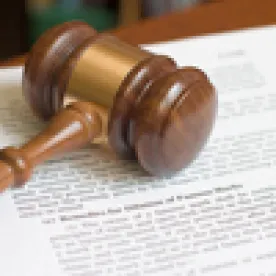The Board denied Patent Owner’s request to file certain exhibits, authorized Patent Owner’s “corrected” Response, and granted Patent Owner’s motion to seal.
The Board began by discussing Patent Owner’s request to file exhibits that it alleged it mistakenly failed to file with its Response. Patent Owner argued that Petitioner should have been aware of the exhibits because they were listed on Patent Owner’s exhibit list, cited in the Response, and were filed in a related case. Petitioner argued that it would be prejudiced significantly if the Board permitted Patent Owner to file the exhibits because Petitioner had already filed its Reply and Motion to Exclude based on the existing record and because it did not question two declarants concerning the unfiled exhibits because they were not part of the record. The Board concluded that Petitioner would be unduly prejudiced if Patent Owner was permitted to add new evidence to the record at this late stage of the proceeding. The Board also considered Patent Owner’s at least twenty-five day delay in requesting a conference call with the Board concerning this issue and concluded that it weighed against granting the request.
The Board then addressed Patent Owner’s attempt to correct typographical errors in its Response by filing an errata sheet and a “corrected” Response. The Board explained that its rules do not provide for automatically correcting a paper filed by a party via an errata sheet and that the Patent Owner should have sought authorization to file a motion to file a corrected Response. However, after reviewing the Response as well as Petitioner’s Reply, the Board determined that the identified errors were merely typographical errors and that Patent Owner’s underlying argument was clear. Seeing no prejudice to the Petitioner in permitting the change, the Board decided to enter the “corrected” Response and consider the purported “errata.”
Finally, the Board discussed Patent Owner’s motion to seal copies of certain agreements, deposition transcripts, and Petitioner’s Reply. For reasons explained in a related case but not in this decision, the Board was persuaded that good cause exists to seal the requested materials. Accordingly, the motion to seal was conditionally granted for the duration of the proceeding. However, if the final written decision of the Board substantively relies on any information in a sealed document, the document will be unsealed by an Order of the Board. Patent Owner also requested permission to provide modified redacted copies of the sealed materials if any particular portion is substantively relied on in the final written decision in the proceeding. The Board, however, determined that the request was premature.
Schott Gemtron Corp. v. SSW Holding Co., Inc., IPR2014-00367
Paper 54: Order on Conduct of the Proceeding and Patent Owner’s Motion to Seal
Dated: January 27, 2015
Before: Justin T. Arbes, Philip J. Hoffman, and Georgianna W. Braden
Written by: Arbes
Related Proceedings: IPR2013-00358



 />i
/>i

